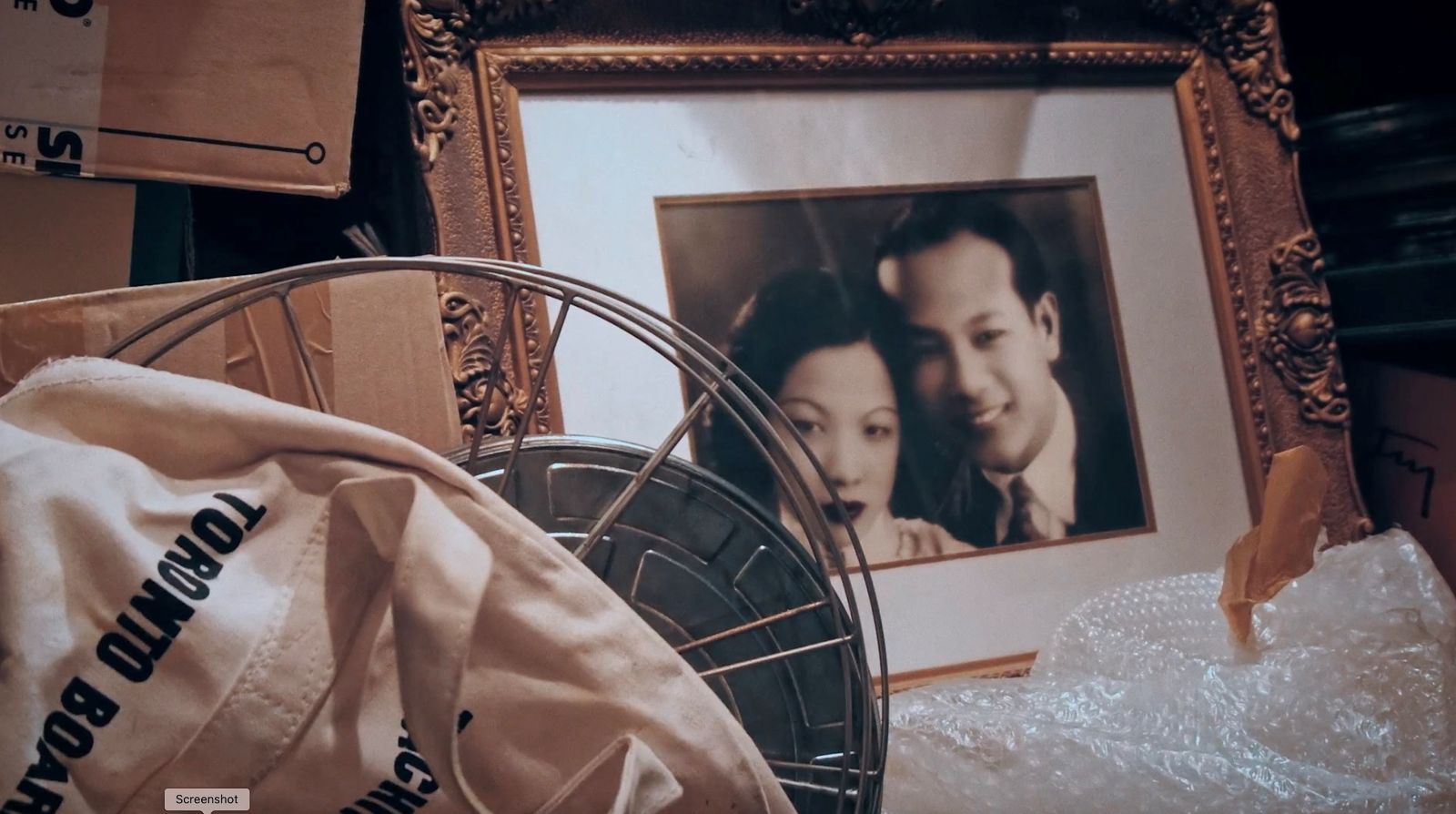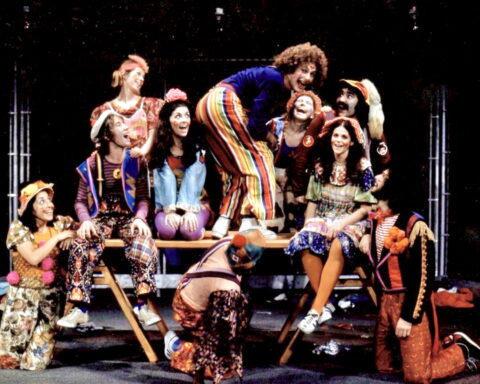Palimpsest: The Story of a Name
(France/Hong Kong/Taiwan, 108 min.)
Dir. Mary Stephen
Programme: Centrepiece (World Premiere)
I first heard Mary Stephen’s name in 2023 after the Toronto Reel Asian International Film Festival named the Stephen the Fire Horse Award Recipient in recognition of her extensive film career. Admittedly, I expected, with a surname as Anglo as Stephen, that the filmmaker must either be mixed race or married to a white person — an ill-informed assumption I’m sure Stephen encounters regularly.
Stephen’s latest film, Palimpsest: the Story of a Name, sets the record straight for presumptuous people such as myself, and for Stephen as well. Recounting her family history back decades and across continents, Stephen plays detective in the great family mystery of how her parents went from Hilda Yik and Chan Tik-Fong to Hilda and Henry Stephen.
Across the film, Stephen absorbs the recorded legacy her father left behind in the form of handwritten journals, some more legible than others. She gathers as much archival footage and documentation as possible, even considering how her family may have crossed paths with the nephew of Virginia Woolf (née Stephen). Stephen takes a holistic approach to her detective work, considering the societal pressures of the time and changes in history, from the colonization of Hong Kong to Japanese occupation and the rise of the Communist Party in China.
Palimpsest steadily weaves its way through its initial question with the precision and organization of a science experiment. However, Palimpsest’s affecting power comes from its ability to give space and catharsis to Stephen, and all of us who grew up on lands not of our ancestors.
In examining Henry’s journals and the stories he told to explain why a Chinese man would have an English surname, we discover a person hampered by insecurity, maybe even inferiority. Whether claiming to be of Aboriginal Australian heritage or bi-racial, Henry’s assertions come heavily influenced by the Euro-centric world around him and the idea that the west was the best.
Henry describes living with his adopted Chan family, the patriarch being a business partner of his late father, and marvelling at their Westernized home. Impressed with the Western furnishings and dress sense of the family, Henry writes that he immediately went and bought Western suits.
In considering the history of Hong Kong and the sartorial shift from ma kwa (the traditional Chinese jacket worn by men) to double-breasted tweed, we can see the desire across British Hong Kong by many to appear more Westernized. That the Western way of dressing, decorating, and speaking reflects superiority isn’t unique to Henry, though. It’s a trend seen across the colonies and beyond.
Stephen wonders aloud what her maternal grandmother would have thought about her mother becoming a Mrs. Stephen “without having to marry a gwai lo” (Cantonese slang used to refer to white people). Her intonation hints towards the perceived accomplishment a certain generation would have seen such a name change.
Stephen ensures Palimpsest never judges Henry for his choices, or the yarn he spins to explain them — although his siblings definitely have their own thoughts. The film shows an understanding as to why Henry, and many after him, struggle with their identity in the face of persistent discrimination and condescension by others.
By tailoring his life towards the Western ideal, Henry may have believed that this would somehow bring him closer to acceptance by the West, or perhaps garner some level of distinction within Hong Kong or the Chinese diasporic communities abroad. But Stephen and her sister still suffered the same fate us Hos, Leungs, Aus, and Kwans endured as students in predominantly white schools, even if their enrollment forms read “Stephen.”
Henry’s journey exemplifies a greater issue many have experienced in chasing an image not inherent to our circumstances, whether racial, economic, or even religious: one can do everything in their power to appear to be them, but they will always see you as other.
Palimpsest serves as a family investigation and a personal essay for Stephen, but what her efforts uncover — a desire for acceptance and belonging — finds connection across a broad spectrum. The vulnerability of Stephen’s filmmaking and willingness to share her story such that others may find solace, courage, and everything in between offers an inspiring message in and of itself. Especially in cultures that safeguard family secrets to a fault, Palimpsest demonstrates the value in opening the vault.












